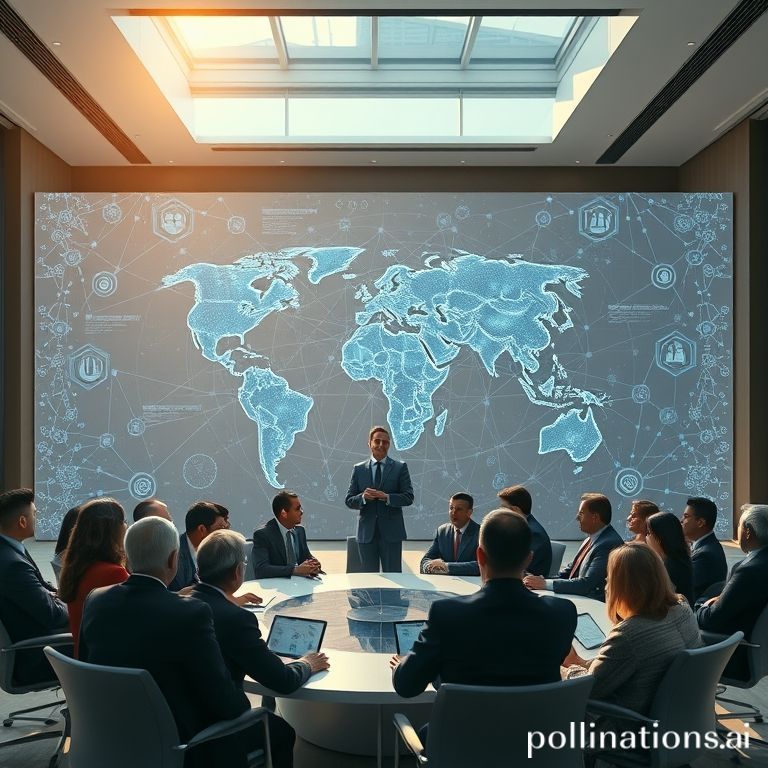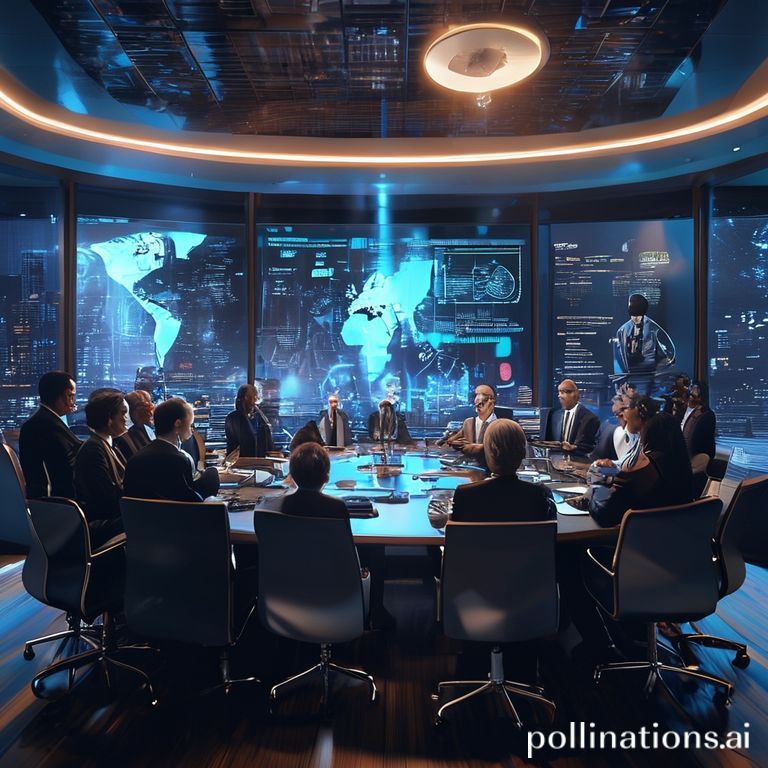
Ultimate Summit 2025 Global: 5 Breakthrough Insights
The world stands at a pivotal juncture, grappling with the rapid evolution of Artificial Intelligence. As AI’s capabilities expand, so too do the questions surrounding its ethical deployment, governance, and long-term impact on humanity. It is against this backdrop that the highly anticipated UN Summit 2025 is set to convene, aiming to forge a global accord on AI regulation amidst an increasingly competitive technological race. This landmark event, often referred to as the **Summit 2025 Global**, promises to be a defining moment for the future of AI.
The preparatory discussions leading up to the **Summit 2025 Global** have been intense, reflecting the diverse interests and concerns of nations, tech giants, civil society, and academic experts. The stakes are incredibly high, with the potential to shape how AI is developed, deployed, and controlled for decades to come. As the world eagerly awaits the outcomes, five breakthrough insights are already emerging, hinting at the profound shifts and agreements expected from this crucial gathering.
The Urgency Behind the Summit 2025 Global Initiative
The current technological landscape is characterized by an unprecedented acceleration in AI development, driven by both innovation and geopolitical competition. Major global powers are investing heavily in AI research, viewing it as a critical component of economic growth and national security. This race, while fostering incredible advancements, also heightens the risk of fragmented regulatory approaches and potential misuse.
Navigating the geopolitical landscape presents one of the most significant challenges for the **Summit 2025 Global**. Different nations hold varying perspectives on data privacy, censorship, and the role of government in technological innovation. Reconciling these divergent views into a cohesive global framework requires diplomatic skill and a shared understanding of common goals.
Beyond geopolitical concerns, the ethical imperatives and societal impact of AI demand immediate attention. Issues such as algorithmic bias, job displacement, autonomous weapons, and the potential for deepfakes to undermine trust are pressing. The **Summit 2025 Global** aims to address these concerns head-on, seeking to establish guardrails that protect human rights and foster beneficial AI development.
Insight 1: A Unified Framework for AI Governance Emerges from the Summit 2025 Global
One of the most significant breakthroughs expected from the **Summit 2025 Global** is the establishment of a foundational, unified framework for AI governance. This framework is designed to provide a common set of principles and guidelines that countries can adapt into their national laws. It moves beyond mere recommendations to propose actionable standards.
Core principles of the accord are anticipated to include transparency, accountability, fairness, and human oversight in AI systems. These principles aim to ensure that AI development prioritizes human well-being and democratic values. The framework will likely emphasize the importance of explainability in AI decisions, particularly in critical applications like healthcare and justice.
A key focus will also be on addressing dual-use technologies – AI systems with both beneficial and potentially harmful applications. The accord is expected to propose mechanisms for monitoring and controlling the proliferation of such technologies, especially those with military implications. This delicate balance between innovation and control will be central to the success of the **Summit 2025 Global**.
Insight 2: Bridging the Digital Divide and Ensuring Equitable Access
The **Summit 2025 Global** recognizes that the benefits of AI must be universally accessible, not just concentrated in developed nations. A critical insight emerging is the commitment to bridging the global digital divide, ensuring that all countries can participate in and benefit from the AI revolution. This involves more than just technology transfer; it’s about empowerment.
Capacity building in developing nations will be a cornerstone of this effort. The accord is expected to outline initiatives for training local talent, providing access to computational resources, and fostering AI research hubs in emerging economies. This proactive approach aims to prevent a new form of technological colonialism, promoting self-sufficiency.
Furthermore, fostering inclusive innovation means supporting the development of AI solutions tailored to local needs and contexts. This might include AI for sustainable agriculture in Africa or AI-driven healthcare diagnostics in rural Asia. The **Summit 2025 Global** seeks to create pathways for these localized innovations to thrive, ensuring AI serves diverse populations.
Insight 3: Defining Accountability and Redress Mechanisms
As AI systems become more autonomous and integrated into daily life, questions of responsibility and accountability become paramount. The **Summit 2025 Global** is poised to deliver breakthrough insights into establishing clear legal frameworks for AI malpractice and effective redress mechanisms for those negatively impacted. This moves beyond abstract ethics to concrete legalities.
New legal frameworks for AI malpractice are expected to be a key outcome, outlining who is liable when an AI system causes harm. This could involve developers, deployers, or even data providers, depending on the nature of the failure. These frameworks aim to provide clarity and protection for individuals and organizations alike, fostering trust in AI technologies.
International cooperation on enforcement will be crucial for these mechanisms to be effective across borders. The **Summit 2025 Global** will likely propose a multilateral body or a network of national authorities to investigate cross-border AI incidents and ensure compliance. This collaborative approach recognizes the global nature of AI’s impact and the need for unified action.
Insight 4: Investing in AI Safety and Research
Ensuring the safe and beneficial development of AI requires significant, coordinated investment in research and safety protocols. The **Summit 2025 Global** is expected to highlight a collective commitment to accelerating research into AI safety, robustness, and interpretability. This is not just about preventing harm but about building resilient and trustworthy systems.
Collaborative research initiatives will be a central pillar, pooling resources and expertise from nations, academic institutions, and private companies. This could include joint projects on adversarial AI detection, robust decision-making algorithms, and methods for verifying AI system behavior. The aim is to create a shared global knowledge base for AI safety advancements.
Furthermore, the accord will likely establish international standards for secure AI development, from data collection and model training to deployment and maintenance. These standards will provide benchmarks for best practices, encouraging developers to build security and safety into AI systems from inception. The proactive stance taken by the **Summit 2025 Global** is critical.
Insight 5: The Role of Multi-Stakeholder Partnerships in the Success of Summit 2025 Global
The complexity of AI governance demands a collaborative approach that extends beyond nation-states. A key insight from the preparatory work for the **Summit 2025 Global** is the recognition of the indispensable role of multi-stakeholder partnerships. This involves bringing together diverse voices to ensure comprehensive and effective solutions.
Engaging tech giants and innovative startups is crucial, as they are at the forefront of AI development. The accord will likely propose mechanisms for private sector involvement in standard-setting, ethical guidelines, and responsible innovation. Their technical expertise and resources are vital for implementing any global framework effectively.
Civil society organizations, ethicists, and academic experts also contribute invaluable perspectives on societal impact and ethical considerations. The **Summit 2025 Global** aims to institutionalize their participation, ensuring that human rights, privacy, and social justice remain central to AI governance discussions. Their independent scrutiny provides a vital check and balance.
Challenges and the Road Ahead for Summit 2025 Global
While these insights offer a hopeful vision, the path to a fully realized global accord is fraught with challenges. Divergent national interests, the rapid pace of technological change, and the difficulty of enforcing international agreements will test the resolve of the international community. Sustained commitment beyond the initial **Summit 2025 Global** will be necessary.
The success of the accord will depend on its adaptability to future AI advancements and its ability to garner widespread ratification and implementation. Continuous dialogue, review mechanisms, and a willingness to evolve the framework will be essential for its long-term relevance. The initial agreements from the **Summit 2025 Global** are merely the beginning of a sustained effort.
Conclusion
The UN Summit 2025 marks a watershed moment in humanity’s relationship with Artificial Intelligence. The emerging insights — from a unified governance framework and equitable access to robust accountability, safety investments, and multi-stakeholder collaboration — paint a picture of a future where AI is developed and deployed responsibly. The **Summit 2025 Global** holds the promise of guiding AI’s immense power towards human flourishing, mitigating risks while maximizing its transformative potential.
As these breakthrough insights solidify into concrete agreements, the world watches with anticipation. The outcomes of the **Summit 2025 Global** will undoubtedly shape our technological future, impacting economies, societies, and individual lives across the globe. It is a collective endeavor to ensure that AI serves humanity’s best interests. We encourage you to stay informed on the developments from this landmark summit and consider how these global accords will influence your own interactions with AI. What role do you believe individuals and communities play in this global conversation? Share your thoughts and join the discussion on shaping a responsible AI future.



Ah, the Summit 2025 Global, bravely tackling algorithmic bias while simultaneously trying to prevent a new wave of tech colonialism – quite thepacked agenda! Its heartening to see plans for a unified governance framework that countries can, *gasp*, adapt. And isnt it delightful that bridging the digital divide involves empowering others instead of just handing over our old gadgets? The proposed legal frameworks for AI malpractice sound wonderfully precise, though I wonder wholl win the international debate about whos liable when Skynet goes rogue. Investing in AI safety research is crucial – better safe than sorry before the robots decide were inefficient. And the emphasis on multi-stakeholder partnerships is spot-on, as long as the robots dont get invited yet. Onward to 2025, may the guardrails hold and the coffee be strong!